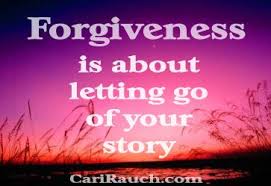
Shame has a crushing feel to it. I think to those that have felt or continue to feel shame, it’s suddenly having a spot light aimed on you. It’s the turning of your stomach, like a cement truck, endlessly twisting what’s inside. Shame is that instant jerk of my head, so as not to force another person to have to look me in the eyes. It’s the belief that I am damaged goods, and everyone knows it.
Shame is a burden I have carried most of my life. It seems to come with the territory of being a survivor of childhood sexual abuse. It wasn’t something I identified as a consequence of the abuse. Growing up, I didn’t know life without it. I felt like I walked around with a neon, flashing light on my forehead that said, “Don’t look, I’m gross.”
Shame is still present in my life. It doesn’t consume me, but becomes an occasional reckoning force. Nothing turns that spotlight on as bright as talking about being a mother suffering with depression and suicidal ideations.
When people talk about suicide, it often lacks an empathetic tone. I don’t fault people for this. It’s not my wish that anyone should feel a pit so deep in their soul, that they crave to feel nothing at all instead.
I’ve been in many conversations where the word “selfish” has been used to describe someone’s decision to attempt and/or succeed at suicide. People say things like, “He has a good life – why can’t he just see that?” Believe me, he can. That’s what makes the coat of shame so thick. In spite of everything he may have – family, money, love – his brain will win every time.
I used to immediately slouch my shoulders and look away from others when the topic of mental illness or sexual abuse would come up. I would feel as if I was burdening others to know they were talking about me. The secret that I am that tainted person, may upset them, so best to just sink in to the pavement.
Shame makes you feel like it is not your choice whether or not you can openly talk about what was done to you, or what was etched in to your DNA. I never felt like I was allowed to let anyone know that I genuinely have felt like suicide was an option. I didn’t know how to not put someone else’s comfort level above my own.
I’ve learned though, that drawing attention to the fact that I can empathetically talk about the subject of depression and abuse actually heals me. Discussing it, has become one of the most effective tools I own. I can help control the conversation when I use the unfortunate knowledge I have, and steer it in a productive way.
It doesn’t come without a strong pull on my chin to look at the ground when I actually do join a conversation. I try my best to fight it. Ridding myself of shame has been like strengthening a muscle inside me. Every time I refuse to look at the ground, instead keeping eye contact, as I confidently discuss a first hand knowledge of something our society sees as taboo, that muscle strengthens.
People talk about fighting stigma but go about combatting it in a processed, packaged way. The stigma exists because of the shame. Lets start accepting that to be worrisome or embarrassed over what you can control, is to be ashamed. Feeling shamed, is what happens when something is done to you. One is always without choice. Understanding the difference is critical and can in fact save lives.
**Originally featured on Crazy Good Parent
 I’m guest posting on Kristi Campbell’s Our Land Series today. I have followed Kristi, at Finding Ninee, since I started blogging. Her Our Land Series is something that I immediately connected with, and am so proud to be among the other brave, insightful writers she has hosted.
I’m guest posting on Kristi Campbell’s Our Land Series today. I have followed Kristi, at Finding Ninee, since I started blogging. Her Our Land Series is something that I immediately connected with, and am so proud to be among the other brave, insightful writers she has hosted.




